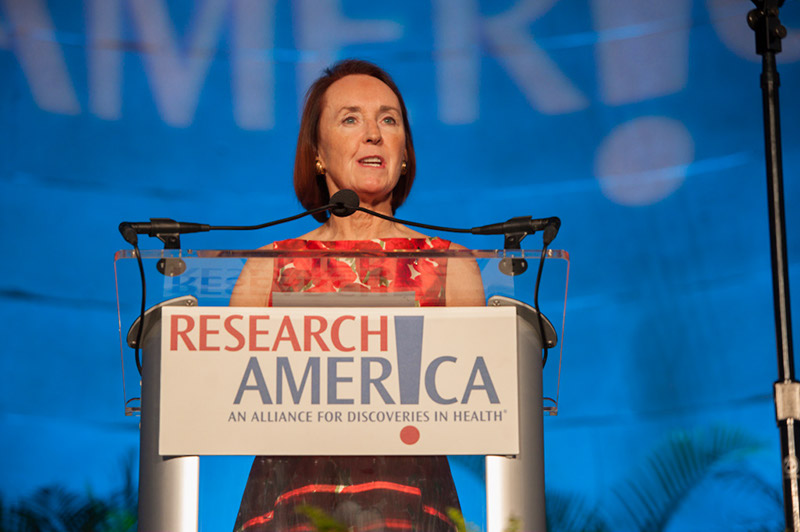News and Coming Attractions

 Dear Research Advocate:
Dear Research Advocate:
This just in: advocacy works. The four provisions in the National Defense Authorization Act (NDAA) that posed a threat to the Congressionally Directed Medical Research Program (CDMRP) have been removed from the conference report. We owe a special thank you to our congressional champions Senators Richard Durbin (D-IL) and Roy Blunt (R-MO) and Representatives Ryan Costello (R-PA), Peter King (R-NY), Sanford Bishop (D-GA) and Dave Loebsack (D-IA).
Next, let’s make advocacy work for federal funding. Congress has only 14 legislative days to act before the current continuing resolution (CR) expires on December 8. From what we are hearing, the chances of an FY18 budget deal being unveiled – much less passed – by that date are slim. Influential members, including House Armed Services Chair Mac Thornberry (R-TX) and House Labor-H Appropriations Chair Tom Cole (R-OK), are pressing hard for a deal in December; however, the most likely scenario as of this writing is another CR until February, stalling research and wasting time, money, and opportunity.
It is all too tempting to read “likely” as “fait accomplis,” which ignores the potential for advocacy to influence ever-changing congressional dynamics. Rather than standing down or biding our time, we must push harder now for a budget deal that is signed into law in December. In partnership with other science-focused organizations, we are launching a joint print and social media campaign next week to advocate a budget deal that raises the caps and devotes more funding to our nation’s science agencies; here’s a preview that makes it easy for you to take action now.
The much-in-the-news House Tax Cuts and Jobs Act (H.R.1) runs the gamut from good to bad to ugly; it’s fair to say that there are portions of each for research and innovation. Research!America is holding a special alliance members meeting and call next Thursday, November 16 with tax experts Nicole Elliot and Kathleen Nilles to discuss the House (and Senate) bills’ implications, positive and negative, for R&D. If your organization is a member (or would like to be one!), please email Jacqueline Lagoy at [email protected] to RSVP.
A pending tax issue separate from the reform package is the imminent reinstatement of the medical device tax. Indiana Governor Eric Holcomb (R-IN) wrote an LTE about the negative impact of the tax in Indiana. Research!America’s letter to House and Senate leadership calling for repeal of the tax was cited in several inside the beltway news vehicles, including CQ Healthbeat, Politico Pulse, and Inside Health Policy. Here’s an editable message you can send to your congressional delegation urging repeal of the tax.
State Senator Mark Miller (D-16) sat in the audience during a panel discussion on advocacy at the Wisconsin Science Festival last week, but when he spoke up later, it was clear that he had the most concise advice of all: “Meet with your elected officials and offer to be a resource!” I was inspired, too, by the Committee Connect program of the UW-Madison La Follette School of Public Affairs. It connects legislators’ interests with UW-Madison faculty with relevant research expertise. If you know of other programs like this, please let Ellie know at [email protected]. We’re always on the lookout for innovative models to share.
Thank you to all our partners for Public Health Thank You Day (PHTYD) on Monday, November 20. There’s still time to join: email Anna Hatch at [email protected] (There’s no cost involved in partnership). And partner or not, sign up here for the Thunderclap campaign; you’ll have a special #PHTYD message automatically published to your Twitter or Facebook page that day.
Sincerely,
Mary Woolley




